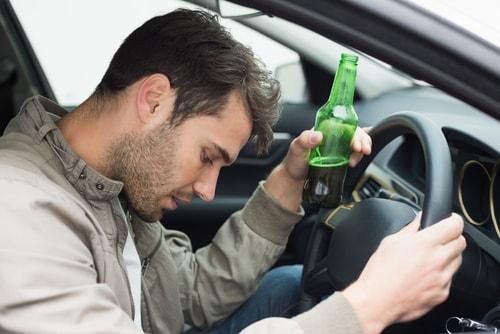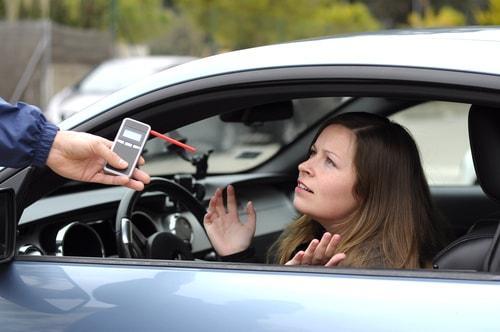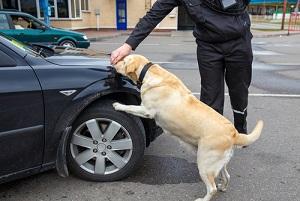Recent Blog Posts
Illinois Police Mistake Pistachio Shells for Marijuana
 An Illinois woman is facing possible felony drug charges after police officers found a bottle of the painkiller tramadol in her coat pocket. The 59-year-old woman does actually have a prescription for the type of pills found by police, but she has been charged with possession of a controlled substance that had been prescribed to one of her relatives. What makes this story unique is the way in which the pills were discovered.
An Illinois woman is facing possible felony drug charges after police officers found a bottle of the painkiller tramadol in her coat pocket. The 59-year-old woman does actually have a prescription for the type of pills found by police, but she has been charged with possession of a controlled substance that had been prescribed to one of her relatives. What makes this story unique is the way in which the pills were discovered.
Unreasonable Searches and Seizures
The pills were only discovered after police searched the woman’s car. The Fourth Amendment to the U.S. Constitution protects gives citizens the right to be "secure in their persons, houses, papers, and effects, against unreasonable searches and seizures." Usually, police must have a warrant to search a home, but motor vehicles are different. A police office must only have "probable cause" to search a vehicle. Probably cause means that the officers must have reason to believe that evidence of a crime or illegal items will be found in the car. However, there are not clear answers as to what counts as probable cause. Of course, illegal items such as drugs, drug paraphernalia, stolen goods, or weapons in plain sight usually constitute probable cause, but officers do not have to physically see contraband in order to be authorized to search the vehicle. In 1985, the Illinois Supreme Court approved car searches if the police officer claimed to be able to smell marijuana in the car.
Unusual DUI Cases
 Sometimes, unusual circumstances leading to drunk driving arrests sound more like movies than real life. Alcohol is often a factor in thrill-seeking or risky behavior. Those who drink to excess are generally less inhibited than a sober person would be. The consumption of alcohol—especially in large quantaties—releases the feel-good hormone dopamine. When a drinker’s brain is flooded with dopamine, the drinker begins to have trouble discerning what is a good decision and what is a bad decision. This leads many people to do or say things while they are drinking that they would not do or say while sober.
Sometimes, unusual circumstances leading to drunk driving arrests sound more like movies than real life. Alcohol is often a factor in thrill-seeking or risky behavior. Those who drink to excess are generally less inhibited than a sober person would be. The consumption of alcohol—especially in large quantaties—releases the feel-good hormone dopamine. When a drinker’s brain is flooded with dopamine, the drinker begins to have trouble discerning what is a good decision and what is a bad decision. This leads many people to do or say things while they are drinking that they would not do or say while sober.
The false confidence which alcohol can give users is one reason why many drinkers choose to drive when they are incapacitated. Many who are arrested for drinking under the influence (DUI) got behind the wheel because they greatly underestimated their inebriation. Such a mistake can cost a person severely.
New Illinois Law for DUI Causing a Death
 By now, virtually every motorist knows that the consequences for driving under the influence (DUI) can be severe. In addition to stiff criminal penalties, drinking and driving can result in injury or death to the driver, passengers, other motorists, and pedestrians. Tragically, 10,265 people died in alcohol-impaired driving crashes in 2015, the most recent year for which statistics are available. Accidents involving drunk driving account for nearly one-third (29%) of all traffic-related deaths in the United States.
By now, virtually every motorist knows that the consequences for driving under the influence (DUI) can be severe. In addition to stiff criminal penalties, drinking and driving can result in injury or death to the driver, passengers, other motorists, and pedestrians. Tragically, 10,265 people died in alcohol-impaired driving crashes in 2015, the most recent year for which statistics are available. Accidents involving drunk driving account for nearly one-third (29%) of all traffic-related deaths in the United States.
In most cases involving DUI, prosecutors only have a certain amount of time in which to file formal charges. This is known as the statute of limitations. For a misdemeanor DUI offense, the statute of limitations gives authorities 18 months to take action. If the charge is a felony, prosecutors usually have three years from the date of the incident.
A new law, however, recently eliminated the statute of limitations for a felony DUI that causes a fatality. This means that if a person drinks and drives and causes an accident that results in at least one death, he or she can be prosecuted at any time. The three-year limitation will still apply to other felony DUI charges. House Bill 3084 passed both the Illinois House and Senate and became law late last year. The measure went into effect on January 1, 2018.
The Importance of Due Process in the Internet Age
 The internet has changed the world in arguably more ways than any other invention in human history. At the click of a button, we have the ability to share our thoughts and beliefs across the globe. We can access the wealth of global knowledge on our cell phone. While the advances made because of the internet are astounding, there are a few downsides to being constantly connected to the rest of the world, especially as they relate to allegations of illegal activity.
The internet has changed the world in arguably more ways than any other invention in human history. At the click of a button, we have the ability to share our thoughts and beliefs across the globe. We can access the wealth of global knowledge on our cell phone. While the advances made because of the internet are astounding, there are a few downsides to being constantly connected to the rest of the world, especially as they relate to allegations of illegal activity.
Recently, a multitude of men and woman have come forward to accuse others—mostly high-profile individuals—of sexual harassment, sexual assault, and even rape. The public’s response to these allegations has been intense. While it is understandable that many people have emotional reactions to news involving terrible crimes, it is a mistake to automatically assume that any person accused of a crime is guilty.
What You Should Know About Credit Card Skimmers
 In the past, thieves used to have to steal physical property or cash in order to get their payout. Today, much of the money floating around the United States is stored electronically as data, and is transferred via digital transactions. Thus, most people own a debit card and a credit card or two. Virtually anyone who has one or more such cards may have unknowingly been exposed to one of the most complex credit card fraud schemes yet.
In the past, thieves used to have to steal physical property or cash in order to get their payout. Today, much of the money floating around the United States is stored electronically as data, and is transferred via digital transactions. Thus, most people own a debit card and a credit card or two. Virtually anyone who has one or more such cards may have unknowingly been exposed to one of the most complex credit card fraud schemes yet.
If you have ever used an ATM, you are familiar with the plastic slot in which you place your debit or credit card in order to withdraw money from your account. Similar slots are also present on gas pumps and other self-payment machines. According to the Chicago Police Department, some of these innocuous looking plastic slots are actually intricately-designed devices called encoders or skimmers which are capable of stealing a person’s debit or credit card information. Many people whose information is stolen by a encoder are scammed and do not even realize it. Often, it is only when mysterious purchases show up on a credit card statement or there are insufficient funds in an account does the victim realize they have been deceived.
Refusing a Blood Alcohol Test in Illinois
 If you are stopped by a police officer on suspicion of driving under the influence (DUI), the arresting officer may ask you to take a breath, blood or urine test in order to determine your blood alcohol content (BAC). If your blood alcohol content is found to be 0.08 or higher, you are considered legally intoxicated and you will likely be charged with a DUI. But, are you required to take such a test?
If you are stopped by a police officer on suspicion of driving under the influence (DUI), the arresting officer may ask you to take a breath, blood or urine test in order to determine your blood alcohol content (BAC). If your blood alcohol content is found to be 0.08 or higher, you are considered legally intoxicated and you will likely be charged with a DUI. But, are you required to take such a test?
Implied Consent
Illinois has an "implied consent" law. Implied consent means that by driving on the streets and highways of Illinois, you agree to submit to chemical testing for impairment if you are ever arrested on suspicion of DUI. A chemical test is different from a typical criminal interrogation in that you do not have the right to speak to an attorney before you are tested.
It is not uncommon for a police officer to ask a driver to submit to a preliminary breath test before he or she is arrested. In most cases, a preliminary test is used to establish probable cause, and you do not have to take this preliminary test. Refusing a test at this point does not result in any specific penalties, but it may give the officer reason to look more carefully at other indicators of intoxication such as slurred speech or decreased motor skills.
Chicago Woman Sentenced to Probation for Hate Crime
 In early January of this year, the nation was horrified at a shocking display of racism and violence. An 18-year-old disabled man was brutally attacked by four young individuals who filmed and broadcasted themselves physically and emotionally torturing him.
In early January of this year, the nation was horrified at a shocking display of racism and violence. An 18-year-old disabled man was brutally attacked by four young individuals who filmed and broadcasted themselves physically and emotionally torturing him.
In a Facebook Live video stream, the victim can be seen bound and gagged. The aggressors tease, taunt, and humiliate the teen. They beat, stabbed, punched, and kicked the victim, as well as cut off part of his scalp with a knife. The video of the torture lasts about 30 minutes but the victim was bound for several hours. During the video of the attack, the four suspects, who are black, can be heard making expletive-laced comments about "white people" and President Donald Trump. One of the four individuals involved in the attack contacted the victim&s mother and demanded a $300 ransom for the victim&s return.
Former UCLA Basketball Player Speaks About Shoplifting Charges
 The National Association for Shoplifting Prevention estimates that more than $13 billion worth of goods are stolen from retailers each year. Even more shocking, approximately one in 11 people will shoplift at some point in their lives. Many of the people who shoplift never get caught, but those who do face serious legal consequences.
The National Association for Shoplifting Prevention estimates that more than $13 billion worth of goods are stolen from retailers each year. Even more shocking, approximately one in 11 people will shoplift at some point in their lives. Many of the people who shoplift never get caught, but those who do face serious legal consequences.
There are a numerous reasons that a people choose to steal an item from a store. Some may be in serious financial trouble and unable to afford the item or they may simply not wish to pay for it. Others may be influenced by peer pressure or steal in order to impress those with them. Many people shoplift because they believe that it is a victimless crime. Whatever the reason, shoplifting is illegal and doing it can be devastating to a person’s future.
An Eventful Overseas Trip
A college basketball player who had dreams of one day playing for the NBA is facing a much different future after making a mistake many college-aged people make. The young man was visiting China with fellow teammates when the group decided to visit a Louis Vuitton store. The man claimed that his teammates began taking items from the store without the intent to pay for them. He explained that he then started taking items as well because he saw his teammates do it. "We all went out one night, went to the malls…people started taking stuff, and then, you know, me just not thinking and being with them, I took something too," he said.
Can the Police Search My Car During a Traffic Stop?
 Many drivers have had the sickening feeling of seeing flashing lights in their rearview mirror and knowing that they were being pulled over. There is much confusion surrounding what police officers are and are not allowed to do. This confusion has not been lessened by the recent events regarding the shooting of unarmed citizens by police officers and the following media frenzy. The right to be free from unreasonable governmental searches is guaranteed by the Constitution’s Fourth Amendment, and it is important for you to understand your rights as a driver.
Many drivers have had the sickening feeling of seeing flashing lights in their rearview mirror and knowing that they were being pulled over. There is much confusion surrounding what police officers are and are not allowed to do. This confusion has not been lessened by the recent events regarding the shooting of unarmed citizens by police officers and the following media frenzy. The right to be free from unreasonable governmental searches is guaranteed by the Constitution’s Fourth Amendment, and it is important for you to understand your rights as a driver.
Probable Cause
The short answer to the question "Can the police search my car during a traffic stop?" is that it depends. Generally, a police officer needs a warrant in order to search someone’s property, but cars are different. A police officer cannot legally search someone’s car as a normal part of a traffic stop for a minor infraction such as speeding or a broken taillight. However, an officer can search a car if he or she has probable cause to do so.
Illinois Law Offers Second Chances Through Expungement
 If you have ever been arrested on the suspicion of a crime, your arrest becomes part of your permanent criminal record, even if you never convicted. Potential employers, financial institutions, and even educational admissions officers could conduct background checks when you apply for a job, loan, or school program. Even just a single arrest in your history could lead to uncomfortable conversations and embarrassing questions long after the incident itself has been all but forgotten. Depending on how your case was resolved, however, your arrest may qualify to be expunged or removed from your permanent record. Thanks to a new law that became effective this year, more individuals than ever before could be eligible to restore lost opportunities by clearing their record.
If you have ever been arrested on the suspicion of a crime, your arrest becomes part of your permanent criminal record, even if you never convicted. Potential employers, financial institutions, and even educational admissions officers could conduct background checks when you apply for a job, loan, or school program. Even just a single arrest in your history could lead to uncomfortable conversations and embarrassing questions long after the incident itself has been all but forgotten. Depending on how your case was resolved, however, your arrest may qualify to be expunged or removed from your permanent record. Thanks to a new law that became effective this year, more individuals than ever before could be eligible to restore lost opportunities by clearing their record.
What Is Expungement?
When an arrest is expunged, it means that all physical and digital records related to that arrest and subsequent prosecution are destroyed, deleted, or otherwise rendered inaccessible. An expunged arrest essentially never happened, and the arrest cannot be seen on background checks conducted for any purpose. Removing an arrest from one’s record can obviously be a tremendous help to that person’s future.







